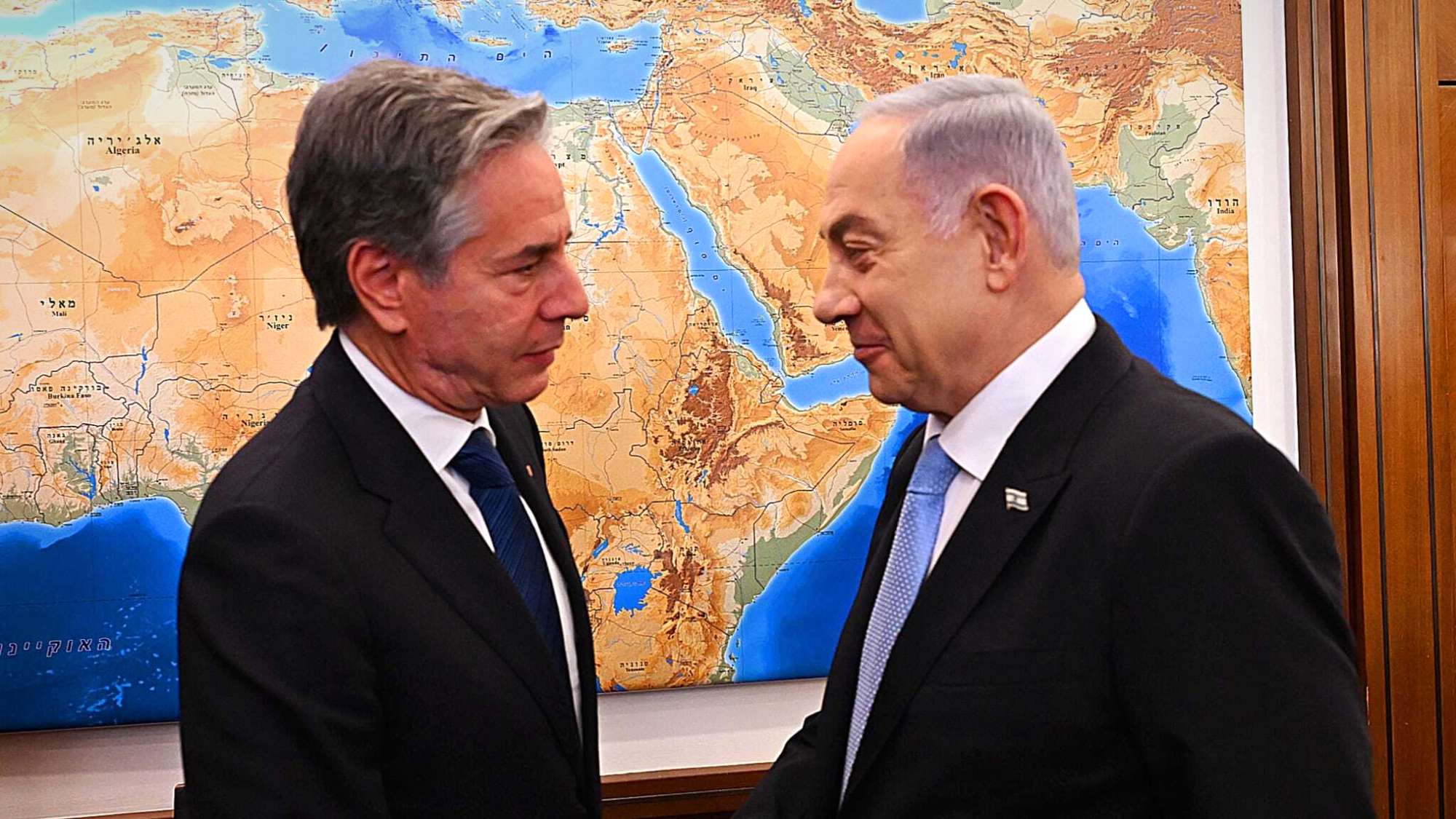Biden nudges Netanyahu on Gaza cease-fire
The US is pressing Israel and Hamas to agree to a cease-fire and hostage release deal

A free daily email with the biggest news stories of the day – and the best features from TheWeek.com
You are now subscribed
Your newsletter sign-up was successful
What happened
President Joe Biden spoke with Israeli Prime Minister Benjamin Netanyahu on Wednesday, urging him to bring the Gaza "cease-fire and hostage release deal to closure," the White House said. Vice President Kamala Harris, in Chicago for the Democratic National Convention, was also on the call. Thousands of protesters against Israel's Gaza war marched outside the DNC for a third day; dozens were arrested Tuesday.
Who said what
"A Gaza cease-fire deal is tantalizingly close," David Ignatius said at The Washington Post, but U.S. and Israeli officials say "Hamas has been silent" on the proposal to bridge differences between the two sides and "Netanyahu has been slow-walking the negotiations." Netanyahu's office said "Israel will insist" on achieving "all of its objectives for the war," including "securing" the Gaza-Egypt border with Israeli forces — a nonstarter for Hamas.
What next?
U.S., Egyptian and Qatari mediators are "planning to gather Thursday in Cairo to discuss how to increase pressure on Hamas," Ignatius said. There is also "skepticism, along with fatigue, among many in Israel about Netanyahu's commitment to securing an agreement," The Associated Press said. Arab officials told The Times of Israel there's "no point" to this week's talks unless the "U.S. pressures Netanyahu to back off his new demands" to keep troops in Gaza indefinitely.
The Week
Escape your echo chamber. Get the facts behind the news, plus analysis from multiple perspectives.

Sign up for The Week's Free Newsletters
From our morning news briefing to a weekly Good News Newsletter, get the best of The Week delivered directly to your inbox.
From our morning news briefing to a weekly Good News Newsletter, get the best of The Week delivered directly to your inbox.
A free daily email with the biggest news stories of the day – and the best features from TheWeek.com
Peter has worked as a news and culture writer and editor at The Week since the site's launch in 2008. He covers politics, world affairs, religion and cultural currents. His journalism career began as a copy editor at a financial newswire and has included editorial positions at The New York Times Magazine, Facts on File, and Oregon State University.


